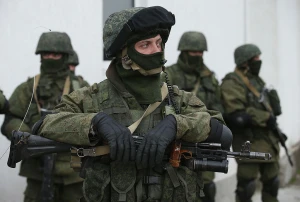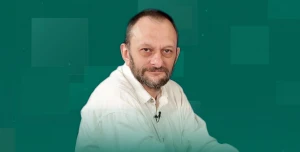
NATO summit emphasizes defeat of Russia in one of its main objectives in Ukraine — ISW
The NATO summit in Vilnius showed how far the full-scale invasion of the Russian Federation pushed Moscow away from the original goals for which the aggression against Ukraine began
This is stated in a report by the Institute for the Study of War (ISW).
Preventing the expansion of NATO and the distance of the Alliance's borders from Russia were among the stated goals of the Kremlin before the invasion of Ukraine. The Kremlin repeatedly reiterated this goal throughout the war.
The lack of general resonance in the Russian information space in connection with the events at the NATO summit, as well as the accession of Finland to NATO and the agreement of Turkey to approve the protocol on the accession of Sweden to the Alliance, probably indicates that the Kremlin suffered and realized these defeats.
Many Russian sources report on the NATO summit in a dispassionate and muted manner, which is inconsistent with the stunning defeat the summit actually represents for Russia's pre-war goals.
Vilnius summit and Ukraine’s NATO accession
The NATO summit took place in Vilnius on July 11-12. The meetings were attended by leaders and government officials from various countries. Lithuania hosted the summit for the first time at the LITEXPO congress center. Security was ensured by thousands of military personnel, and the airspace was protected by air defense systems.
Leaders from 31 NATO countries, including US President Joe Biden, participated in the meetings. Delegations from Japan, South Korea, New Zealand, Australia, Ukraine, and Sweden were also invited. Over 2,400 members from 48 foreign delegations, including heads of state and government officials, were expected to attend. Ukrainian President Volodymyr Zelenskyy was also present.
During the summit on July 11, a decision was made regarding Ukraine. The Membership Action Plan stage was canceled, and Ukraine will receive an invitation to join the Alliance once it fulfills the entry requirements and gains the agreement of all NATO allies.
President Zelenskyy expressed his dissatisfaction with the conditions attached to Ukraine's invitation, stating that it seemed like a lack of readiness to invite Ukraine to NATO.
The Alliance agreed on a final communiqué concerning Ukraine, reaffirming the commitment made in 2008 that Ukraine would become a NATO member. The document acknowledged that Ukraine's path to Euro-Atlantic integration has exceeded the requirements of the Membership Action Plan. The member countries recognized Ukraine's progress in operational and political integration with NATO, as well as its significant reform efforts. Progress will be regularly assessed through the Annual National Programme.
Ukraine's Foreign Minister, Dmytro Kuleba, responded to the summit's decision by emphasizing that NATO should not delay Ukraine's accession to the military-political bloc. He also noted that the specific conditions for joining and who should formulate them were not yet known.
President Zelenskyy commented on the summit's results, expressing that if Ukraine receives an invitation to join NATO, it would be an ideal outcome.
On July 12, the G7 countries reached a joint declaration specifying security guarantees for Ukraine. Countries willing to join the agreement will have the opportunity to do so.
Subsequently, President Zelenskyy, who initially criticized the summit's decision, acknowledged that any doubts and ambiguities regarding Ukraine's NATO membership were now removed. He stated that Russia would no longer have a barrier blocking NATO's door.
For more information about the NATO summit, you can follow the link.
- News













































